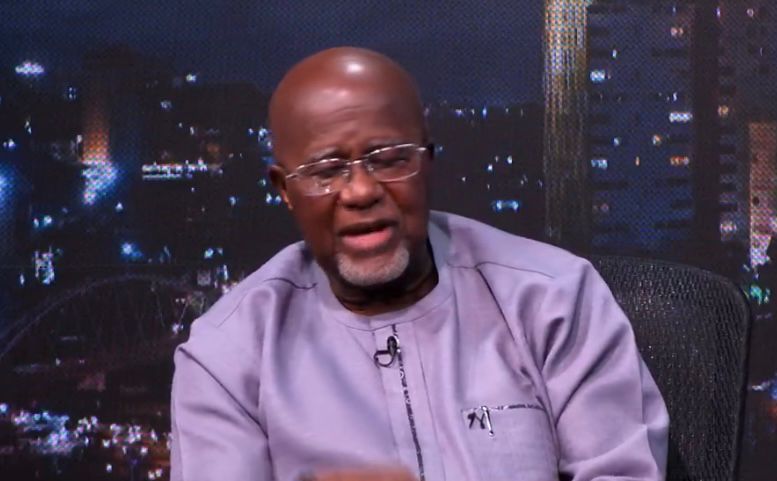The New Patriotic Party (NPP), a dominant force in Ghanaian politics, is grappling with the aftermath of a significant electoral setback in the 2024 general elections. Hackman Owusu-Agyemang, Chairman of the NPP Council of Elders, characterized the defeat as “painful,” acknowledging the depth of the party’s disappointment. The loss represents the NPP’s worst performance since Ghana’s transition to multi-party democracy in 1992, shattering the party’s aspirations of “breaking the eight,” a term referring to their ambition to secure a third consecutive presidential term. The election results saw a considerable shift in power dynamics, with the National Democratic Congress (NDC) and its candidate, John Dramani Mahama, securing a decisive victory with a 1.6 million vote margin. The NPP also experienced a substantial reduction in its parliamentary representation, losing nearly 50 seats and ending up with a total of 87 following the Akwatia by-election. This electoral outcome signals a need for introspection and strategic realignment within the NPP.
Despite the setback, Owusu-Agyemang emphasized the party’s resilience and determination to rebuild. His message of “never say die” encapsulates the NPP’s resolve to learn from the 2024 experience and emerge stronger for the 2028 electoral contest. The chairman highlighted the party’s commitment to undertaking a thorough reorganization process, focusing on strengthening its base and addressing the factors that contributed to their defeat. This rebuilding effort will likely involve analyzing the reasons for the loss, including potential shortcomings in campaign strategy, messaging, and voter engagement. The party will also need to address any internal divisions and ensure unity of purpose moving forward. This period of reflection and restructuring is crucial for the NPP to regain its footing and effectively compete in future elections.
The NPP’s loss raises several key questions about the evolving political landscape in Ghana. The results suggest a shifting voter base and a potential desire for change among the electorate. The NPP will need to carefully analyze the demographic trends and voter preferences that contributed to the NDC’s victory. This analysis should include an examination of the key issues that resonated with voters, such as economic conditions, social welfare programs, and infrastructure development. Understanding these dynamics will be crucial for the NPP to adapt its platform and messaging to effectively connect with the electorate in future elections. The party will also need to identify and address any perceived weaknesses that may have contributed to their loss, such as allegations of corruption or disconnect with the concerns of ordinary citizens.
The 2024 election results also underscore the importance of robust democratic processes and institutions in Ghana. The peaceful transfer of power between the NPP and the NDC demonstrates the strength of the country’s democratic framework. However, the NPP will likely advocate for continuous improvements to the electoral system, including measures to enhance transparency and ensure the integrity of the voting process. This may involve advocating for reforms related to voter registration, ballot security, and the independent oversight of elections. Strengthening democratic institutions and promoting public trust in the electoral process are essential for fostering stability and ensuring the legitimacy of future elections.
The road to recovery for the NPP will require a multi-faceted approach, including internal reforms, strategic communication, and renewed engagement with the electorate. The party will need to articulate a compelling vision for the future of Ghana and demonstrate its commitment to addressing the needs and aspirations of its citizens. This may involve revisiting its policy positions on key issues such as economic development, job creation, education, and healthcare. The NPP will also need to strengthen its grassroots organization and build stronger connections with communities across the country. Effective communication and outreach will be essential for regaining public trust and mobilizing support for the party’s agenda.
As the NPP embarks on its rebuilding process, the party will need to draw upon its historical contributions to Ghana’s democratic journey. Owusu-Agyemang’s reflection on the NPP’s evolution highlights the party’s legacy of advocating for democratic principles and contributing to the country’s progress. The party will need to remind voters of its past successes and demonstrate its continued commitment to serving the interests of the nation. This period of introspection represents an opportunity for the NPP to renew its commitment to its core values and emerge as a stronger, more responsive political force. The 2024 election results serve as a wake-up call, urging the party to adapt to the changing political landscape and reconnect with the aspirations of the Ghanaian people. The challenge now is to translate this period of reflection into concrete action, fostering unity within the party and regaining the trust of the electorate for the 2028 elections and beyond.


